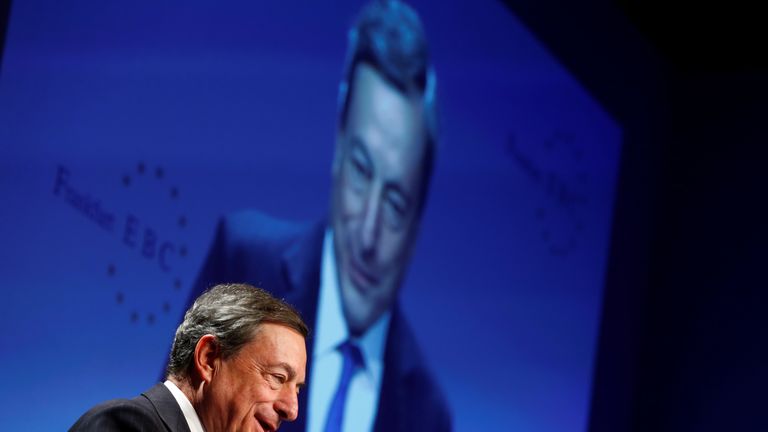ECB to offer new cheap loan stimulus as eurozone slows
The European Central Bank (ECB) is to offer more cheap loans to banks from September in a bid to boost lending in a eurozone slowing economy.
The euro area’s central bank sharply downgraded its forecasts for growth this year from 1.7% to 1.1% at the March meeting of its Governing Council – held against the backdrop of global economic headwinds and Brexit uncertainty.
Following the conclusion of its quantitative easing (QE) programme last year, the bank was widely expected to announce more help to support bank lending to businesses and consumers because the world economy remained under pressure.
The new round of cheap bank loans marks the third time since the eurozone crisis that the ECB has launched so-called ‘Targeted longer-term refinancing operations’ (Tltro).
It is the provision of long-term loans to banks, with the incentive that those who lend more to the real economy will be able to borrow more and at a lower interest rate than the ECB usually offers.
The Bank said the programme would begin in September and last until 2021.
It also confirmed it was pushing back guidance on the earliest possible date for any interest rate increase, from the autumn until the end of the year, and would continue to reinvest the proceeds of its four-year QE programme to support liquidity.
Its core interest rate was kept at zero and at minus 0.4% for banks to park their money with the ECB – encouraging them to lend money rather that store it.
The Bank’s president, Mario Draghi, told reporters its unanimous actions were “adding accommodation” to its accommodative policy stance.
“We maintained the risk assessment as tilted to the downside. This isn’t frequent because we usually say when we take some policy actions the risks get back into balance.”
He explained that was because the risks, currently, were factors outside of its control.
They included Brexit uncertainty and the US/China trade war, he said, and its actions could only bolster the resilience of the eurozone economy to these pressures.
The ECB’s action follows a more cautious approach by its US counterpart, the Federal Reserve, which has paused its series of interest rate hikes amid the fallout from the trade war.
The effects have damped demand elsewhere in the global economy – damaging Germany’s export-led economy especially while Italy has fallen into recession.
:: Germany ‘gets away with black eye after avoiding recession
Financial markets were quick to react to the ECB’s measures – with eurozone banking stocks leaping as the euro weakened against the dollar by up to 0.4%.
Source: Read Full Article



